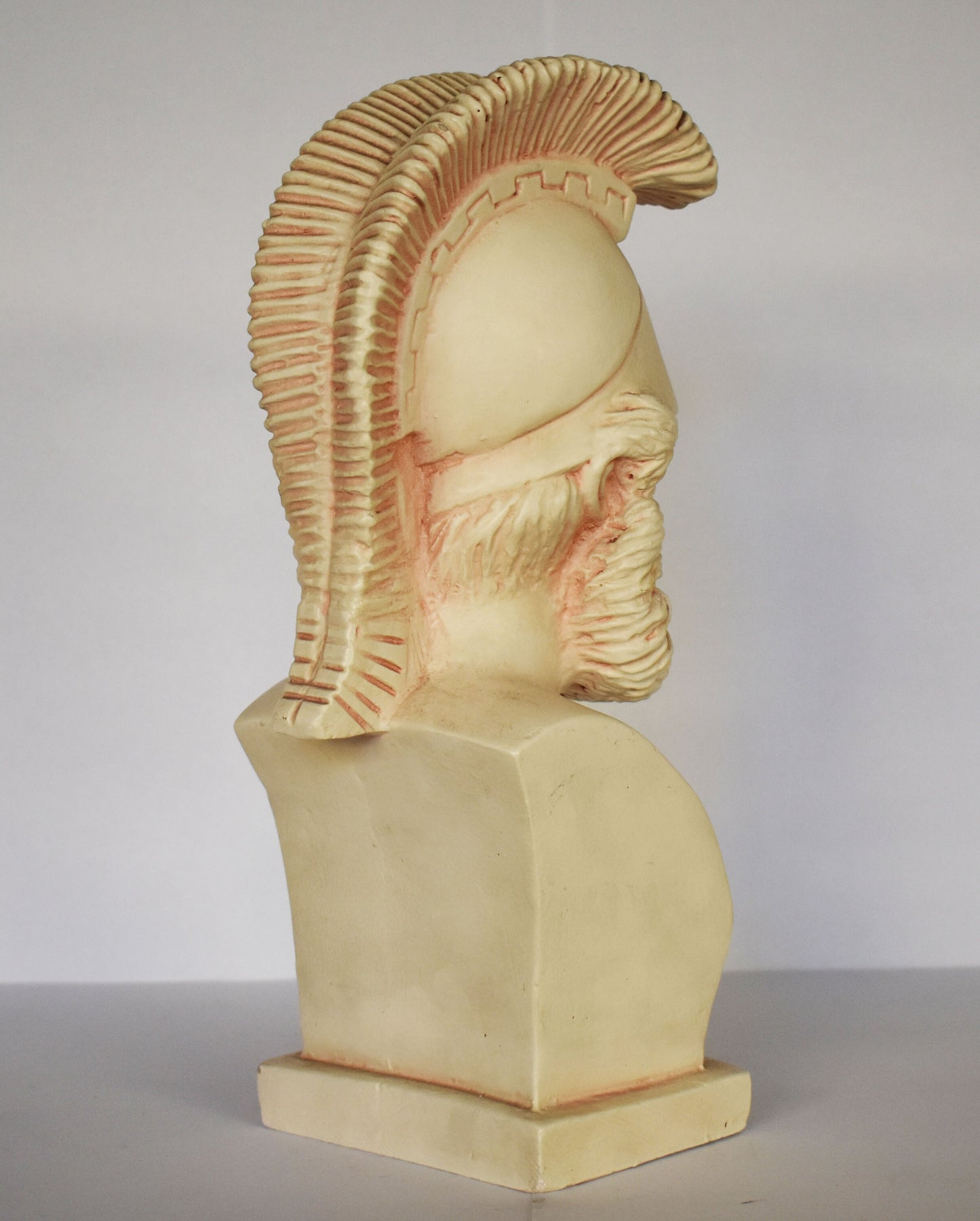Gallery Demeter
Menelaus - King of Sparta - Husband of Helen - Brother of Agamemnon - Trojan War - Homer's Iliad - Museum Reproduction - Head Bust
Menelaus - King of Sparta - Husband of Helen - Brother of Agamemnon - Trojan War - Homer's Iliad - Museum Reproduction - Head Bust
Regular price
€139,90 EUR
Regular price
Sale price
€139,90 EUR
Unit price
per
Tax included.
Shipping calculated at checkout.
Couldn't load pickup availability
Item Specifics
Condition: New, Made in Greece.
Material: casting stone
Height: 32 cm - 12,6 inches
Width: 11,5 cm - 4,5 inches
Length: 17 cm - 6,7 inches
Weight: 2050 g
Menelaus, in Greek mythology, was a king of Sparta and son of Atreus and Aerope.
Atreus was murdered by his nephew, Aegisthus, who took possession of the throne of Mycenae and ruled jointly with his father Thyestes. During this period Menelaus and his brother, Agamemnon took refuge with Tyndareus, king of Sparta, whose daughters Helen and Clytemnestra they respectively married. Helen and Menelaus had one daughter, Hermione.
Menelaus succeeded Tyndareus (whose only sons, Castor and Polydeuces became gods), and Agamemnon, with his brother's assistance, drove out Aegisthus and Thyestes, and recovered his father's kingdom. He extended his dominion by conquest and became the most powerful prince in Greece.
When it was time for Helen, Tyndareus's daughter, to marry, many Greek kings and princes came to seek her hand or sent emissaries to do so on their behalf. Among the contenders were Odysseus, Menestheus, Ajax the great, Patroclus and Idomeneus, but Menelaus was the favorite though, according to some sources, he did not come in person but was represented by his brother Agamemnon. All but Odysseus brought many and rich gifts with them.
Tyndareus would accept none of the gifts, nor would he send any of the suitors away for fear of offending them and giving grounds for a quarrel. Odysseus promised to solve the problem in a satisfactory manner if Tyndareus would support him in his courting of Penelope, the daughter of Icarius. Tyndareus readily agreed and Odysseus proposed that, before the decision was made, all the suitors should swear a most solemn oath to defend the chosen husband against whoever should quarrel with the chosen one. This stratagem succeeded and Helen and Menelaus were married. Following Tyndareus's death, Menelaus became king of Sparta because the only male heirs, Castor and Polydeuces had died and ascended to Mount Olympus.
Some years later, Paris, a Trojan prince came to Sparta to marry Helen, whom he had been promised by Aphrodite. Helen fell in love with him and left willingly, leaving behind Menelaus and Hermione, their nine-year-old daughter.
Menelaus called upon all the other suitors to fulfill their oaths, thus beginning the Trojan War. Virtually all of Greece took part, either attacking Troy with Menelaus or defending it from them.
In the Iliad Menelaus fights bravely and well, even when wounded, and distinguishes himself particularly by recovering the body of Patroclus after the latter is killed by Hector. Although he is depicted as a reasonably wise and just leader, he has a tendency to rattle off fatuous bromides in the most inappropriate circumstances.
During the war, Menelaus' weapon-carrier was Eteoneus. (Odyssey IV, 22, 31.)
After the Greeks won the Trojan War, Helen returned to Sparta with Menelaus (though she had married Paris' brother, Deiphobus, after Paris' death, Menelaus killed Deiphobus). According to some versions, Menelaus stayed in the court of King Polybus of Thebes for a time after the war.









